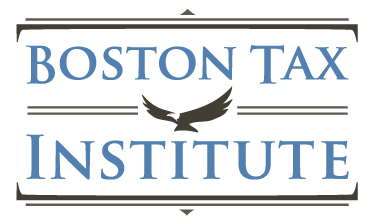Law professors Kathleen DeLaney Thomas and Erin Scharff have given us a great tour of tax misinformation in the digital age with Fake News and the Tax Law (available on SSRN), It has never been easier to get accurate tax information than it is now. Unfortunately misinformation is even easier. You don’t have to look for it, it seeks you out on a variety of social media sites. And misinformation can be easier to understand making it easier to spread.
Impact On Policy
Professors Delaney and Scharff seem mainly concerned with the way fake news can distort tax policy through people not understanding what is really going on. This can cause them to advocate or support or oppose provisions that don’t work they way they think they will. An example that they use to illustrate how things worked on the good old days was the campaign to make the estate tax unpopular documented by Michael Graetz and Ian Shapiro in Death By A Thousand Cuts: The Fight Over Taxing Inherited Wealth (2006). Things have changed:
Misinformation campaigns no longer need to rely on paid advertisements or a coordinated campaign of industry groups, some of which may be created specifically to gin up opposition to policy changes (as was the case with the estate tax).
Tax Is Confusing
There is a discussion of how tax aversion makes people behave irrationally. They might prefer tax-exempt bonds even when the lower yields more than cancel out the benefits of the exemption. Sales tax holidays are immensely popular even though according to studies retailers manage to realize most of the benefit by not giving discounts. One of the funniest misconceptions is the inability to think clearly about average versus marginal rates which make some people think that getting a raise or working overtime can put them behind on a net basis.
When I was working summers in a unionized factory I loved overtime. There was one fellow though who looking at his paycheck noted some sort of correlation between the increase in his net pay and his federal withholding and decided that when he was working overtime he was working for the government. I wonder if that is what inspired Billy Joel in Movin’s Out (Anthony’s Song) to include:
You oughta know by nowYou can pay Uncle Sam with the overtimeIs that all you get for your money
Given how confused many, possibly most, people are about taxes, it can be relatively easy to confuse them further.
What Is Fake News?
The authors define fake news to mean news intentionally created to distort public opinion. This is different than “false news” and “misinformation” which arises from genuine confusion or author’s mistakes. Sometimes it is hard to tell which it is. I remember thinking that people who come up with tax protester theories had to know that their stuff was nonsense, but I’m not sure anymore.
The authors have created a curated dataset of 56 stories that they consider fake news. They developed the set by searching fact-check websites for stories that included the word “tax”. The stories go back to 2016 which is around when fact-checking of fake news became more common. The earliest false story in the dataset is a 2016 story about Scientology’s tax-exempt status being revoked and the most recent total fabrication is about Alexandria Ocasio-Cortez proposing a tax on white people. The stories are numbered in reverse chronological order.
My favorite is number 50 – Did the IRS ‘Fast Track’ Tax-Exempt Status for ‘After School Satan’ Clubs ?. In that March 2017 piece Snopes leaned pretty heavily on my post, an Editors’ Pick on this platform, The Devil And Lois Lerner. The original story based on a press release from Judicial Watch was Day 1409 on the TaxProf Blog’s continuing IRS Scandal rundown. It turned out that the organization in question did not start the After School Satan program until two years after it gained exempt status and it had taken advantage of a new expedited approval process which according to the Journal of Accountancy had cut approval time to 13 days on average for everybody who used it.
Elements Of Fake Tax News
The authors break the fake news stories into eight categories. There is politics which includes stories about candidate tax plans which turn out to misstate the implications of the plan, commentary on candidate’s personal tax situations and details of proposed legislation. The authors were surprised at how disconnected stories about tax proposals were from what was actually discussed in Congress.
“New Taxes” were a theme in more than 20% of the stories. Proposed tax increases came up frequently. The authors include some stories under “Tax Obligations and the IRS” . They were about misstated filing deadlines and the possibility of having to repay COVID payments. There were false stories about the distribution of the tax burden and how tax dollars are spent. There were stories about deductions including some that Walmart and Facebook took charitable deductions for money raised from customers.
The authors were surprised by the number of stories that dealt with tax-exempt status. Although some of it is accounted for by the “IRS Scandal” that I call Teapartygate, they noted there was more. Finally there is what they call “old chestnuts” including tax protester theories which now spread on social media..
Takeaways
Thomas and Scharff note that the ease of disseminating false news is one more cost of tax complexity. It is easier to get complicated rules wrong by accident and easier to distort them deliberately. They suggest that IRS and Treasury competing with fake new will need to market, get ahead of the story and anticipate how it will be falsely spun. They also recommend that stories about tax dollars well spent might help taxpayer morale. Then there is the suggestion that techniques that spread false news so well like repetition could be used to spread the straight dope.
Pictures and graphs also help. One of the things you may learn as your career in accounting progresses is that there are many quite intelligent people who can look at a column of numbers and essentially see nothing.
Messages should be succinct – containing an illustration or photo—as well as repetitive. Common myths should be repeatedly debunked in this manner, emphasizing the reader to consider the accuracy of tax information.
The professors are more optimistic than I am about being able to address the problem. I hope they are right.
Originally published on Forbes.com.
For great value continuing professional education. I recommend the Boston Tax Institute

You can register on-line or reach them by phone (561) 268-2269 or email vc@bostontaxinstitute.com. Mention Your Tax Matters Partner if you contact them.
For articles oriented toward tax professionals check out Think Outside The Tax Box.
































































































